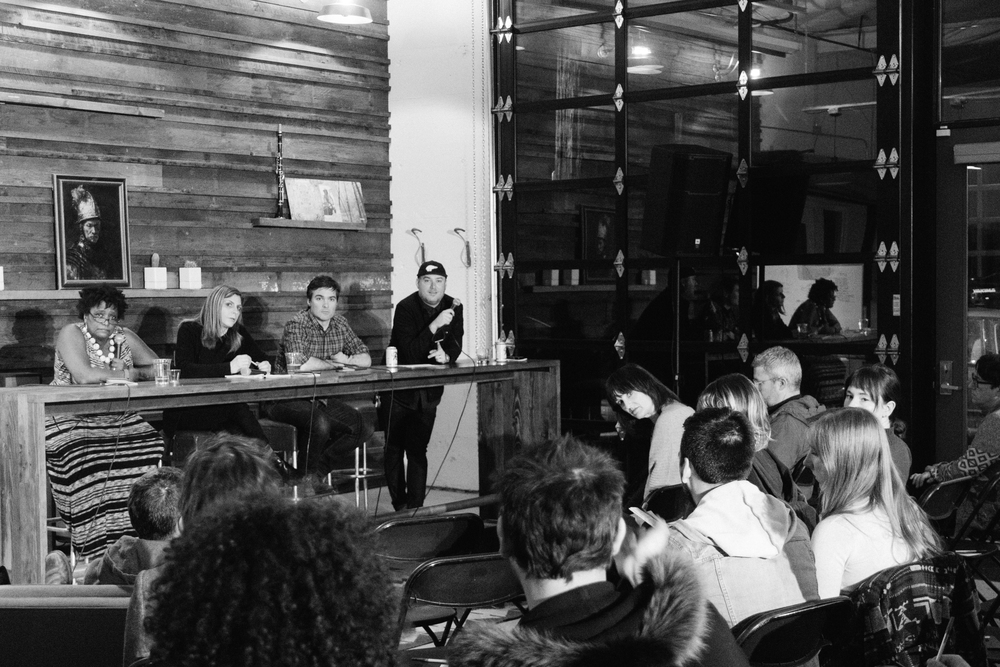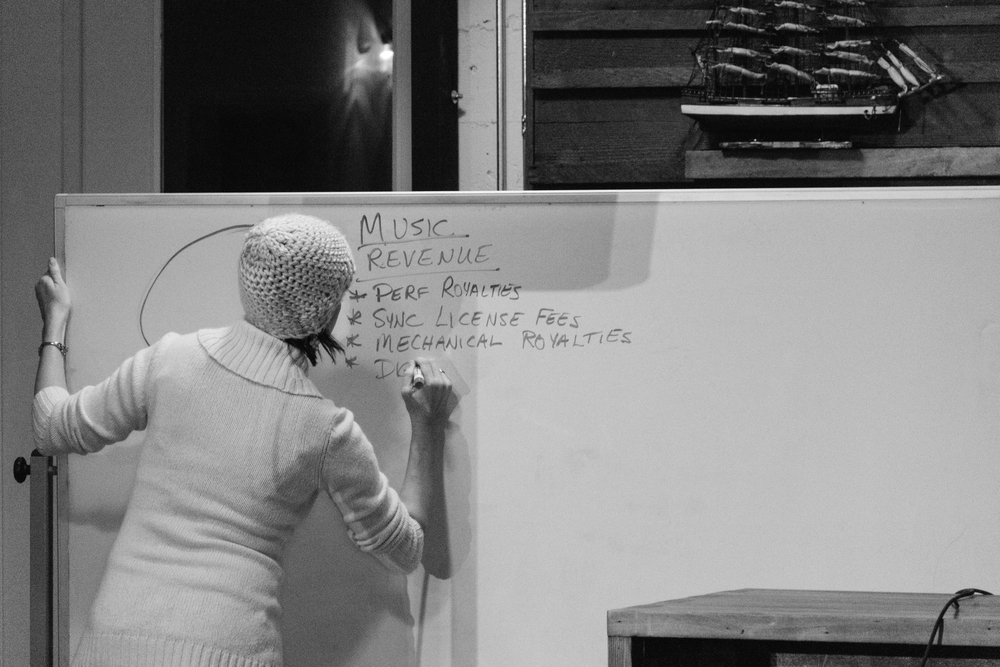![Panel speakers [from left to right]: Nan Wilson, Tracie Verlinde, Ehren Ebbage and Ryan Wines (Photo by Brandon Day)](https://www.marmosetmusic.com/journal/wp-content/uploads/2020/07/407_image-asset.jpg)
Panel speakers [from left to right]: Nan Wilson, Tracie Verlinde, Ehren Ebbage and Ryan Wines (Photo by Brandon Day)
On Wednesday, we hosted an Artist Education event at Marmoset HQ, focused on everything you should know about copyrights and Performance Rights Organizations. The event featured a panel of experts in the field including successful singer songwriter and composer, Ehren Ebbage, Nan Wilson of Manage Ad Music and Tracie Verlinde of BMI, with our Co-Founder, Ryan Wines, leading the discussion. And with aim to share the knowledge from the event, we have answers to five commonly asked questions about the copyright and royalties world.
Making a living as a musician can be a challenging and rewarding venture. Like any other form of art-meets-business, it’s all about diversifying and closely managing your income streams. Royalty income can be a critical revenue source for many artists, and when managed well, it can also be one of the most powerful components to help spur and create a sustainable living. Copyrighting in also an essential, yet often neglected aspect, protecting and declaring ownership rights for the music you create. While we know this area of music isn’t the sexiest of topics, it’s an extremely important one and we’re here to help advocate for you and your awesome jams. Please send questions you have to community@marmosetmusic.com.
1. What is a Performing Rights Organization (PRO)?
A Performing Rights Organization (or PRO) helps songwriters, composers and musicians receive payment by collecting publishing revenue streams through “performance royalties.” As a songwriter, composer, or lyricist, you’re owed what is called a “performance royalty” any time your music is played on radio stations (terrestrial, satellite, and internet), used on TV shows or commercials, or performed in live venues, in addition to many other traditional and emerging mediums. Performance royalties are paid by radio stations, venues, and TV networks to Performing Rights Organizations like ASCAP, BMI, SESAC, and SOCAN (in Canada) who then distribute the money to their affiliated songwriters and publishers. Royalties for streaming media (think Spotify, Pandora, iTunes Radio and others) and some other digital media are administered by SoundExchange. PROs only collect for artists who register with them. It is free to register as a songwriter with both BMI and SESAC. ASCAP charges a $50 registration fee.

Photo by Brandon Day
2. What kinds of royalties are available to collect?
By registering your tracks to a PRO, your music can work for you. One song can bring in multiple revenue opportunities. Here are three forms of royalties that you can receive:
- Performance Royalties. When your song is played on the radio, the composer and publisher of the song are owed money.
- Mechanical Royalties. Anything you can physically buy with your music on it. CDs, vinyl, a song on iTunes, a ring tone, cassette tape.
- Digital Royalties. Music that you download and stream, like from Pandora. Royalties are pretty minimal associated with streaming platforms at this time.
- Other Royalties. There are other royalty sources available for artists, including those for artists who perform for musical recordings used in commercials, TV shows, films, stage productions and more. There’s also royalties available for artists who are featured on camera while performing or who’s voices are featured in commercials, TV shows, films, stage productions. Artist rights organizations and unions in these areas include the Amercian Federation of Musicians, the Screen Actors Guild, and others.
3. How important is having a publishing company?
When registering with a PRO, it’s important that you register as both a songwriter and a publishing company, if you are both the songwriter and publisher. If you don’t register as the publisher and are the publisher, the PRO can’t give you that portion of the royalty payout. This is true except for BMI — if you register with BMI, you can claim both sides under just a writer’s account. While registering as a publisher can have its benefits, it’s not essential to claim both sides under that particular PRO.

Photo by Brandon Day
4. How do I register my music as a songwriter and publisher?
Copyrighting your music is a critical element in helping to create a sustainable career as a musician, and it’s a relatively simple. It is easy to register as a songwriter. To register as a publisher, you need to pick a name for a publishing company, open up a bank account under that company name, and register your songs with the US Copyright Office. Note: This doesn’t mean you have to get a business license to start a publishing company — you can register your publishing company through your social security number as an individual business.
5. Why is copyrighting my music important?
Copyrighting your songs protects your music and your livelihood as an artist. By registering your music, it creates a digital timestamp and holds up as legal proof if your music has been used without your knowing. Your music is sacred — protect it.
If you have questions about any of this — please reach out our Artist Relations Team at Marmoset. Our mission is to advocate, protect and work to restore value to artists. Give us a shout at community@marmosetmusic.com
